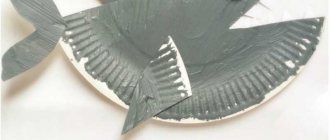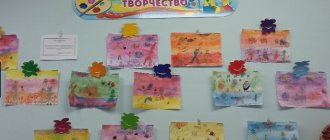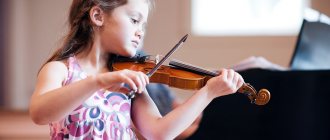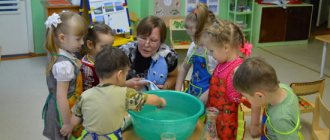An example of research on bread in a preschool educational institution
Let us give an example of planning such work in kindergarten. Cognitive and research activities should be clearly thought out and distributed over months. For example, in an older group you can offer the children a topic related to bread. Such research can be called differently: “Where did the bread come from?”, “What is white gold?”, “Why does the loaf become moldy?”
Depending on the questions posed, a research plan is formed.
In September, educational and research activities begin. The older group is searching for information about the composition of bread. The teacher sets them the task of identifying the components needed to bake delicious buns and loaves. The result of this stage will be a list of ingredients without which it is impossible to bake bread.
In October, kids go with their mentor on an excursion to a bakery. They must visually become familiar with the technology of making rolls and bread, confirm the information that they collected in September about the components of bread.
In November, children receive homework. Together with their parents, they must try themselves as real bakers and master the basic stages of creating delicious white bread.
In December, educational and research activities are completed. The preparatory group is invited to a tasting of those delicious pies and buns that future first-graders made together with their mothers and fathers.
Types of cognitive activity of preschool children
In modern pedagogy, there are several options for such activities. The cognitive and research activity of preschool children can be manifested in actions according to the model proposed by the teacher. For this option, the mentor offers the kids diagrams and algorithms of action. Executive activity consists of the child accepting a certain task, choosing an option for his actions based on the proposed samples, and obtaining a personal result.
Exploring the seasons
An interesting option for research activities in kindergarten is the study of the seasons. The main goal that the teacher sets is to consolidate and deepen the knowledge that the children already possess. This type of research can be done in groups. Kids receive their own assignments, a special observation card and journals for recording their results. For example, you will need to observe for a week how brightly the sun shines, how often it rains in the fall, and write down the results in a journal. The second group will deal with temperature control, attracting parents to help. The third part will have to find out how strong the winds were during this time. After the guys complete their observations, a complete picture is drawn up. The result of such an individual-collective project will be a complete description of weather conditions in a certain season. To develop the creative imagination of children, the teacher gives them an additional task - to come up with suitable clothes for this time of year, made from non-traditional materials. The best works can be “brought into reality” by making a real fashion show at a joint celebration of parents and children.
Food Analysis
Another direction for the cognitive activity of preschoolers can be the study of food products. This is relevant, because according to the new standards, special attention is paid to developing healthy eating skills in future schoolchildren and instilling in them an interest in a healthy lifestyle. To begin with, together with the teacher, the children analyze the composition of various food products, learn about what important chemicals, microelements, and vitamins must be present in the daily diet of every person. To increase the motivation of novice researchers, the teacher conducts role-playing games. Children become chefs, confectioners, doctors in order to understand how important it is to eat properly and on time. Research can be carried out not only in kindergarten, but also beyond. During walks, children offer active games to their teacher, and together they come up with comic tasks for sports competitions. The result of the work may be sports competitions, where mixed teams of children and their parents will be presented. And at the end of the holiday, you can organize a “healthy table”, which will contain only healthy products.
The Importance of Research for Preschoolers
As the child grows up, cognitive and research activity develops, and more complex elements are included in it. Thanks to these processes, the preschooler satisfies his curiosity, expands his knowledge, and changes his own ideas about the world around him.
Such activities help the future first-grader establish cause-and-effect relationships, navigate in space and time, and connect disparate facts into a single picture.



